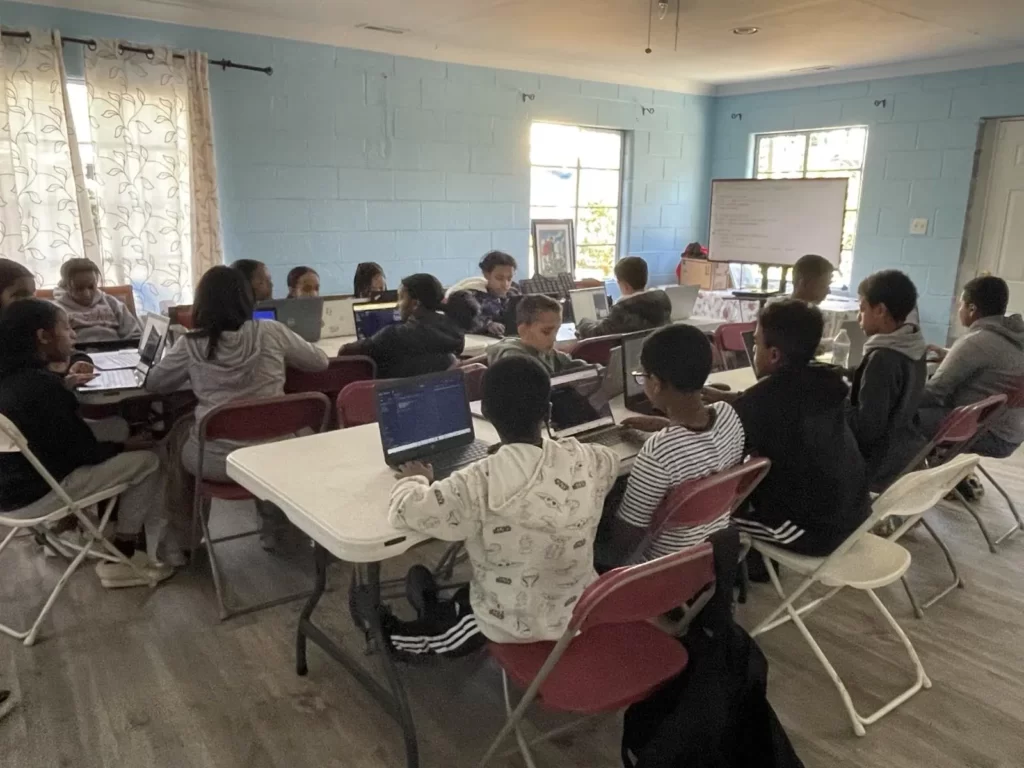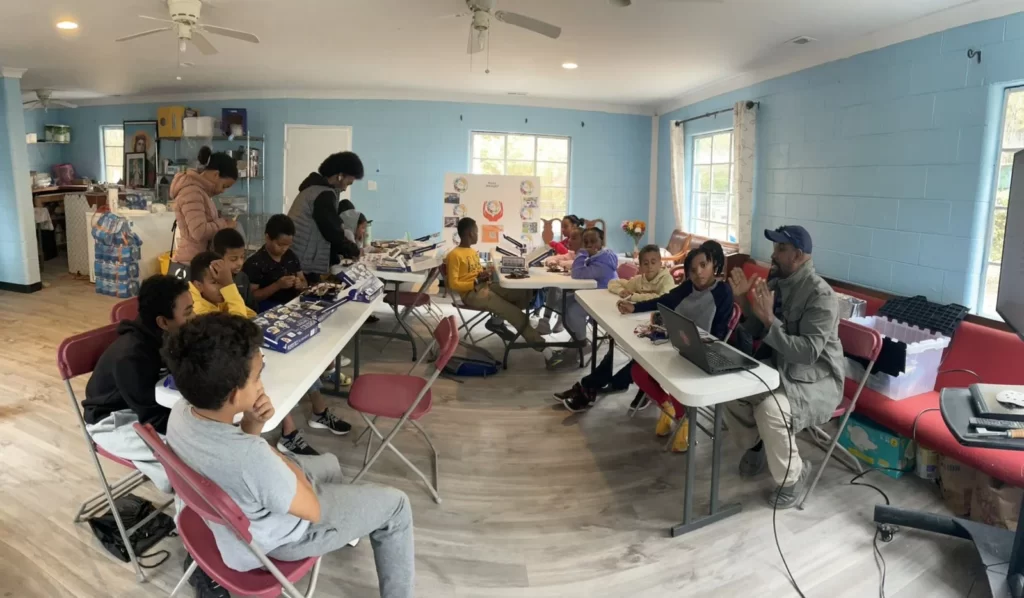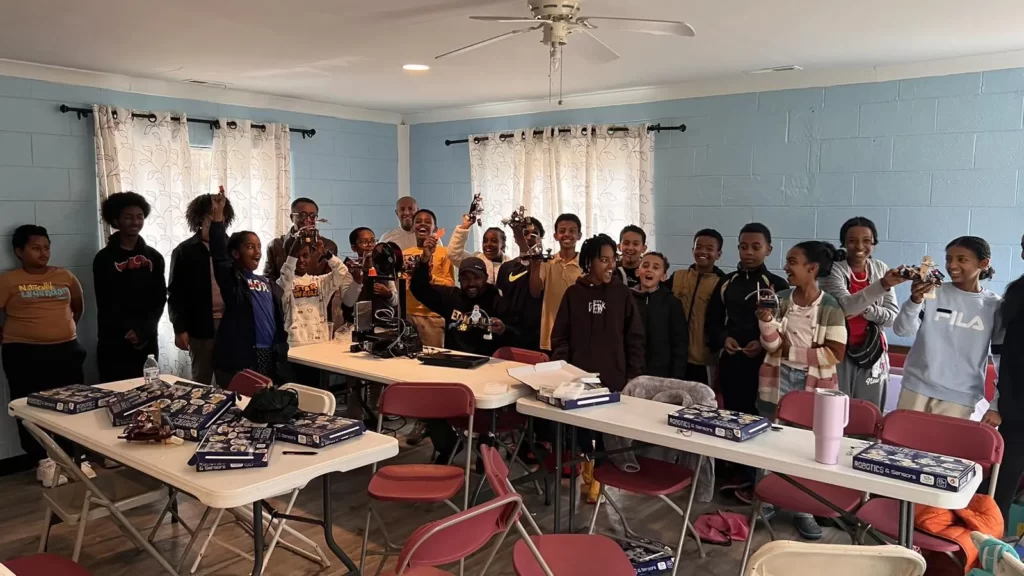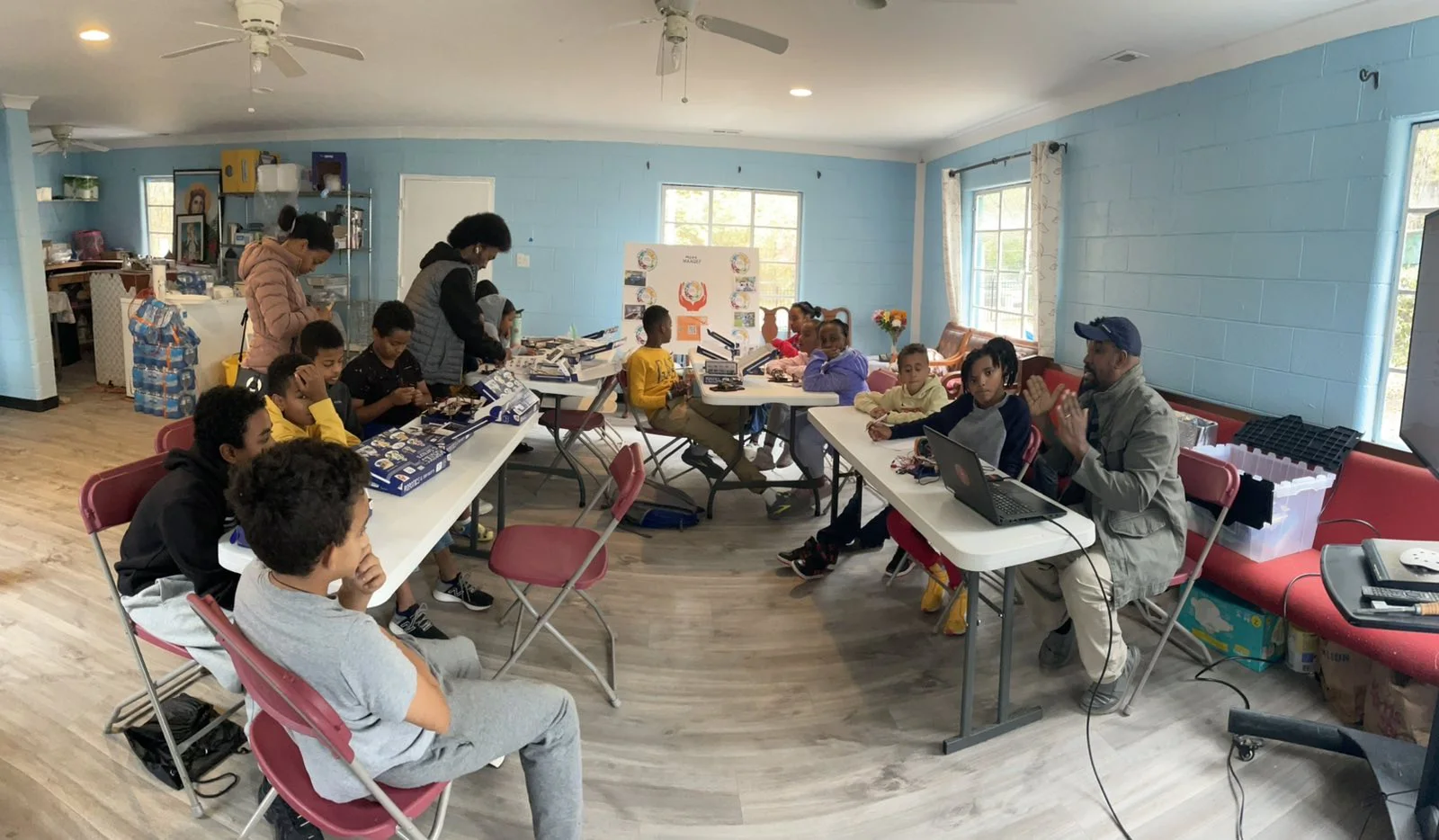Introduction
MaaQef’s commitment to fostering educational growth in Science, Technology, Engineering, and Mathematics (STEM) among middle school students and above is demonstrated through the successful execution of the WINTER STEM program. This initiative, spanning two distinct modules – Robotics & Circuit and Python Programming, has been tailored to inspire and equip students with practical skills in these critical fields.
Program Overview
The WINTER STEM program was designed as a hands-on learning experience, divided into two consecutive five-week modules. Each module was carefully planned to ensure participants gained foundational knowledge and practical skills in robotics, circuits, and Python programming.
Robotics & Circuit Module
- Duration: 5 weeks (November 4, 11, 18, 25, and December 2)
- Structure: 90-minute sessions held on Saturdays from 11:00 AM to 12:30 PM
- Content: Participants engaged in hands-on activities using Sparkfun inventor kits or similar kits, focusing on building and programming robots, understanding electronic circuits, and troubleshooting various challenges.
- Requirements: Middle school students and above, with each student required to bring a Sparkfun inventor kit or a similar kit.
- Capacity: Limited by the number of chairs and tables available to ensure comfortable seating and an effective learning environment.
Python Programming Module
- Duration: 5 weeks (December 9, 16, 23, and January 6)
- Structure: 90-minute sessions held on Saturdays from 11:00 AM to 12:30 PM
- Content: This module introduced students to Python programming, covering basic syntax, loops, conditionals, and data structures. The curriculum was designed to foster problem-solving skills and computational thinking.
- Requirements: Participants were middle school students and above with a general knowledge of programming languages. Each student was required to bring a laptop.
Achievements and Impact
Throughout the program, students demonstrated significant progress in their understanding and application of STEM concepts. The Robotics & Circuit module saw participants completing projects that showcased their ability to design, build, and program robots. Similarly, the Python Programming module enabled students to develop and debug their code, creating simple applications by the end of the course.


Feedback and Observations
Feedback from participants and instructors highlighted the program’s effectiveness in enhancing STEM skills and sparking interest in these fields. The hands-on approach was particularly appreciated, allowing students to apply theoretical knowledge in practical scenarios.
Conclusion
MaaQef’s WINTER STEM program has made a positive impact on the participants, providing them with valuable skills and inspiring a deeper interest in STEM. As we look forward to future programs, we are committed to refining our curriculum and expanding our reach to nurture more young minds in the fascinating world of STEM.



